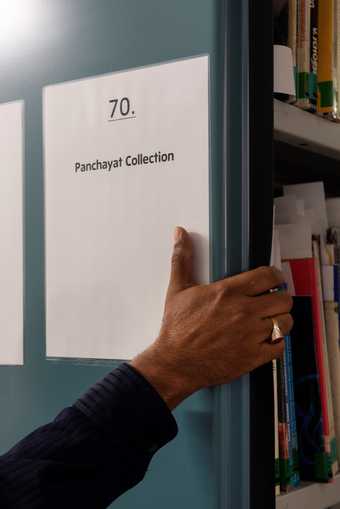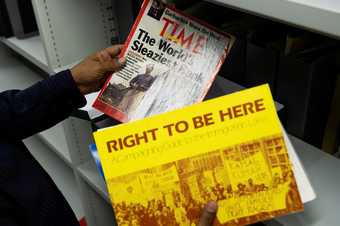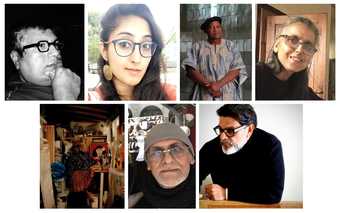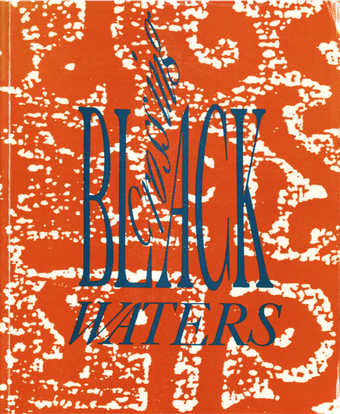
Panchayat Collection stacks, Tate Library Special Collections
Photo: Matt Greenwood © Tate
In 2021, Shaheen Merali, co-founder of the Panchayat Arts Education Resource Unit and one of the Keepers of the Panchayat Collection held at Tate, was commissioned as a curatorial consultant as part of Tate’s case study for the Provisional Semantics project, to research, develop and lead a series of three discussions based on the collection, its content and history. These rich and interweaving conversations, collectively titled Panchayat-Horizon, were recorded on Zoom and track distinct developments in the evolution and impact of Panchayat, the artists it represented, and the social and political contexts of their production and exhibition. The topics and participants in the three conversations are listed below. The breadth of experience, openness and generosity of the artists and thinkers involved makes these recordings a crucial contribution to art history nationally and internationally.

Material from the Panchayat Collection
Photo: Matt Greenwood © Tate
Panchayat-Horizon conversations
The Context
A discussion of the early history of Panchayat with Rita Keegan, artist, curator, lecturer and archivist, and Shaheen Merali, co-curator, writer, critic, and artist, moderated by Narendra Pachkhédé, Commonwealth Fellow, anthropologist and annotator at Center for Inquiry Into the Social, on archives and collections, multiple agencies and embodied memories.
Crossing Black Waters
A conversation reflecting on the 1992 touring exhibition Crossing Black Waters, which showcased work by South Asian artists in Britain, with Shaheen Merali, co-curator and participating artist, in conversation with participating artists Bhajan Hunjan and Said Adrus.
3rd Havana Biennale
Five Black artists from the UK took part in the 3rd Havana Biennale in 1989. Their involvement was initiated by Shaheen Merali, curator and participating artist. In this conversation Merali discusses the exhibition with Pitika Ntuli, sculptor, poet, writer and academic, and Jasmine Chohan, Associate Lecturer at the Courtauld Institute of Art.

Panchayat-Horizon contributors (clockwise from top left): Narendra Pachkhédé, Jasmine Chohan, Pitika Ntuli, Bhajan Hunjan, Shaheen Merali, Said Adrus, Rita Keegan
In line with the broader research questions of the Provisional Semantics project, this case study focused on the methods and practices of co-producing contextual and interpretative material with the keepers of the collection, the artists whose work is represented in it, and other subject specialists. Additionally, the case study surfaced the provisional and contested nature of certain concepts and how they function as descriptive search terms, evidencing the need for alternative cataloguing practices and technologies in the development of a digitised national collection.
The recordings and their transcripts, alongside a number of other written and recorded research contributions generated through the project case study, will form part of an online research publication devoted to the Panchayat Collection, to be published on Tate’s website in 2022.


